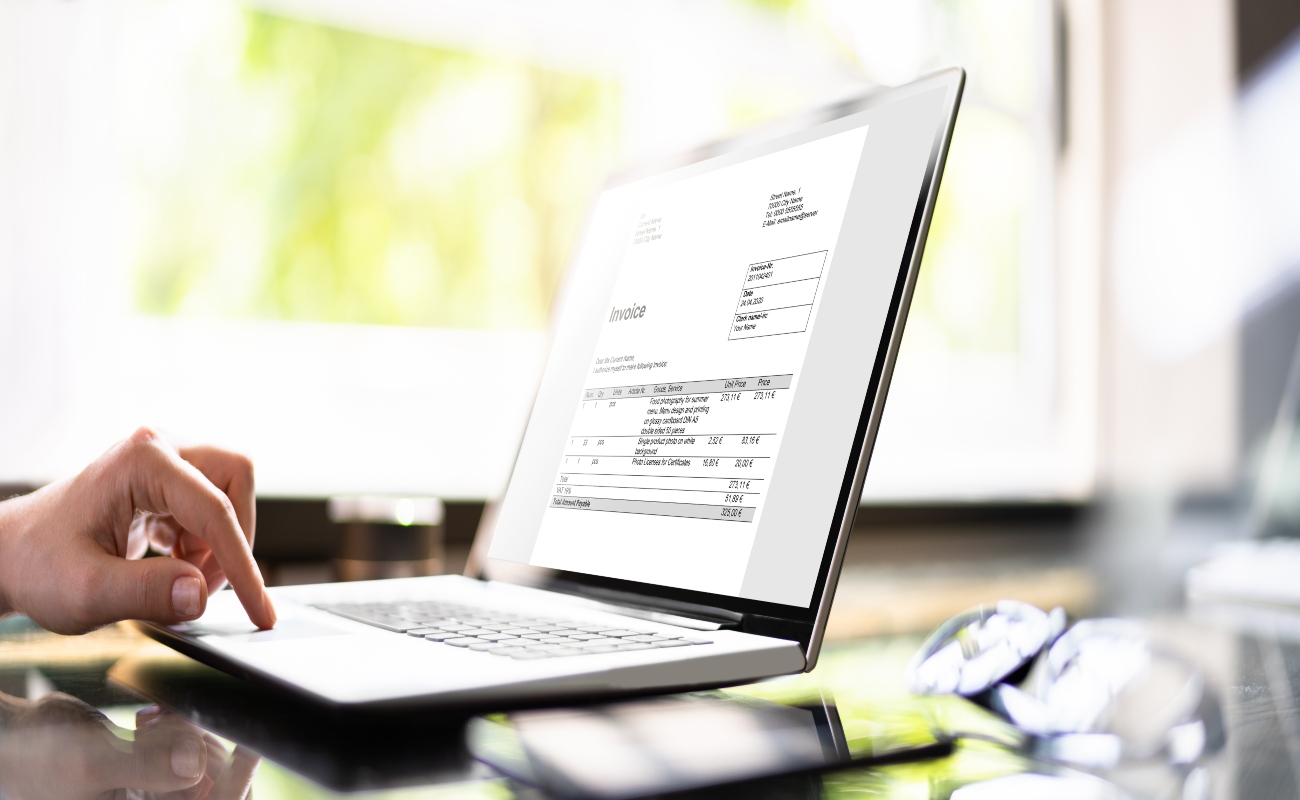Legislation and archiving

Freedz, la solution de validation des factures fournisseurs pour les acteurs de l’immobilier
Freedz, la solution de validation des factures fournisseurs pour les acteurs de l’immobilier Entre délais de paiement, contrôles de conformité et risques de pertes de documents, la gestion manuelle des factures fournisseurs devient un véritable casse-tête pour les professionnels de l’immobilier et du bâtiment. Et que faire quand le volume de factures entrantes explose à […]
To know more about it
Attendre pour se mettre en conformité avec la réforme de la facturation électronique : pourquoi ce n’est pas la bonne stratégie ?
Attendre pour se mettre en conformité avec la réforme de la facturation électronique : pourquoi ce n’est pas la bonne stratégie ? La réforme de la facturation électronique, prévue pour entrer pleinement en vigueur dès septembre 2026, s’impose comme un véritable tournant pour tous les acteurs économiques français. Pour les bailleurs sociaux et les promoteurs […]
To know more about it
Acteurs de l’immobilier et du bâtiment : pourquoi passer par la PDP Freedz ?
Acteurs de l'immobilier et du bâtiment : pourquoi passer par la PA Freedz ? Dans le secteur de l’immobilier et du bâtiment en pleine digitalisation, la gestion efficace et conforme des factures devient un enjeu majeur. La Plateforme Agréée (ex PDP) Freedz s’impose comme une solution dédiée, taillée sur mesure pour répondre aux spécificités de […]
To know more about it
La piste d’audit fiable à l’ère de la facturation électronique : Guide pratique
La piste d’audit fiable à l’ère de la facturation électronique : Guide pratique La réforme de la facturation électronique bouleverse les habitudes des services comptables, y compris dans les organismes de logement social. Au cœur de cette transformation, un concept demeure plus que jamais crucial : la piste d’audit fiable (PAF). Souvent perçue comme technique […]
To know more about it
Electronic invoicing reform: identifying and resolving discrepancies between pre-filled VAT and that declared by the company
E-invoicing reform: identifying and resolving discrepancies between pre-filled VAT returns and VAT declarations E-invoicing reform: how will pre-filled VAT returns be reconciled with VAT declarations? The aim of the e-invoicing reform, which will come into force on 1 January 2009, is to [...]
To know more about it
ViDA Directive: understanding the VAT modernization project
Value Added Tax (VAT) is a major source of revenue for the member states of the European Union. However, the growth of e-commerce, the increasing number of transactions and the emergence of new technologies mean that VAT regulations need to be modernized. The aim of the ViDA directive is to harmonize measures across Europe to increase their effectiveness and reduce tax fraud.
To know more about it
Archiving with evidential value: definition and issues
In accounting, paper is a medium that is tending to disappear in favour of digital format. Dematerialisation also concerns the archiving of documents. It offers many advantages: saving time, space and costs. But digital storage must comply with a number of rules. In this article, discover the rules of archiving with probative value as well as the challenges and benefits for companies.
To know more about it
Electronic invoicing: a constraint or an opportunity?
The introduction of mandatory electronic invoicing has been postponed until 2026. However, French companies are already encouraged to digitize part of their accounting department to be ready when the time comes. Changes to business processes, new methodologies, new opportunities... We take a look at the impact of mandatory electronic invoicing on companies.
To know more about it
E-invoicing: the key to tomorrow's invoicing
The widespread use of e-invoicing is becoming an unavoidable reality for all French companies involved in B2B transactions, with the next deadline for all French companies to receive electronic invoices being September 1, 2026. This transition to digital invoicing, encouraged by the EU, is aimed at combating VAT fraud, but also offers a series of significant advantages in terms of invoice management. We'd like to take a closer look at the concept of e-invoicing, its implications and how it complements e-reporting. The aim is to enable you to make a risk-free transition, so that you can rapidly increase the efficiency of your invoicing processes!
To know more about it
Electronic invoicing reform postponed: what do you need to know?
Originally scheduled to come into force on July 1, 2024, the widespread introduction of electronic invoicing for French companies has been postponed until 2026. This is due to a lack of anticipation on the part of structures, but also to the desire to smooth the transition for organizations, still too few of which have put in place appropriate measures. New timetable, reasons for postponement, future projections...
To know more about it
2024 reform: what role will dematerialization operators play?
nitially scheduled to take effect on July 1, 2024, but finally postponed to 2026, the e-invoicing obligation is still generating confusion. This is due in particular to the change in the system for transmitting and receiving electronic invoices that accompanies it: companies will now have to go through a dematerialization platform. This implies the arrival of new players in the dematerialization circuit. After the reform, only the Public Billing Portal (PPF) and partner dematerialization platforms (PDP) will be authorized to send invoices directly. And what about dematerialization operators? Let's talk about them.
To know more about it
2024 reform: how to choose your electronic invoicing platform?
Initially scheduled for July 1, 2024, but finally postponed to 2026, the obligation to use electronic invoicing is bringing in new players. Under the new system for transmitting and receiving electronic invoices, companies will send them to their customers via a dematerialization platform. They will no longer be able to do so directly between themselves! Public Invoicing Portal (PPF), Partner Dematerialization Platforms (PDP) or Dematerialization Operators (OD)... the choice of these intermediaries is wide, penalizing companies that can quickly feel disoriented in this new ecosystem. What type of platform should you choose? What are their differences? Here's how.
To know more about it